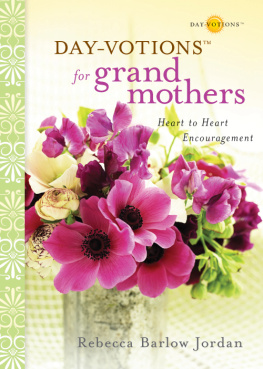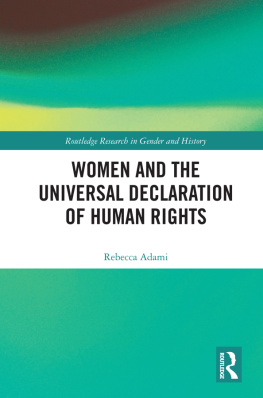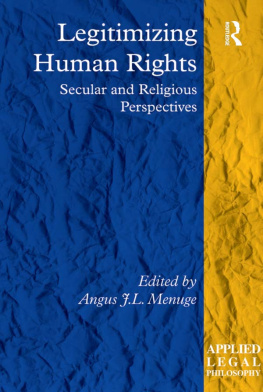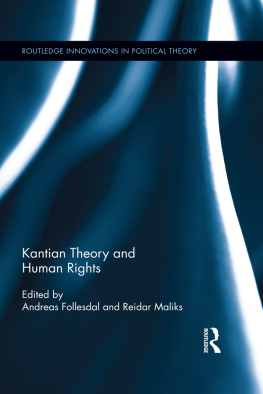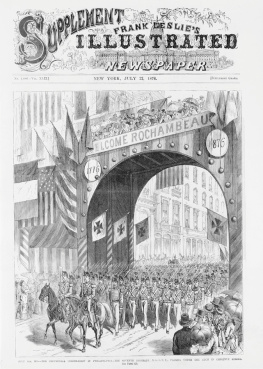Rebecca Barlow - ISS 11 Womens Human Rights and the Muslim Question
Here you can read online Rebecca Barlow - ISS 11 Womens Human Rights and the Muslim Question full text of the book (entire story) in english for free. Download pdf and epub, get meaning, cover and reviews about this ebook. year: 2018, publisher: Springer Singapore, genre: Politics. Description of the work, (preface) as well as reviews are available. Best literature library LitArk.com created for fans of good reading and offers a wide selection of genres:
Romance novel
Science fiction
Adventure
Detective
Science
History
Home and family
Prose
Art
Politics
Computer
Non-fiction
Religion
Business
Children
Humor
Choose a favorite category and find really read worthwhile books. Enjoy immersion in the world of imagination, feel the emotions of the characters or learn something new for yourself, make an fascinating discovery.

- Book:ISS 11 Womens Human Rights and the Muslim Question
- Author:
- Publisher:Springer Singapore
- Genre:
- Year:2018
- Rating:5 / 5
- Favourites:Add to favourites
- Your mark:
- 100
- 1
- 2
- 3
- 4
- 5
ISS 11 Womens Human Rights and the Muslim Question: summary, description and annotation
We offer to read an annotation, description, summary or preface (depends on what the author of the book "ISS 11 Womens Human Rights and the Muslim Question" wrote himself). If you haven't found the necessary information about the book — write in the comments, we will try to find it.
ISS 11 Womens Human Rights and the Muslim Question — read online for free the complete book (whole text) full work
Below is the text of the book, divided by pages. System saving the place of the last page read, allows you to conveniently read the book "ISS 11 Womens Human Rights and the Muslim Question" online for free, without having to search again every time where you left off. Put a bookmark, and you can go to the page where you finished reading at any time.
Font size:
Interval:
Bookmark:
of scholarship on Islam and Muslim affairs, making it available to a wide readership. Books in the ISS are based on original research and represent
a number of disciplines including anthropology, cultural studies,
sociology and political science. Books in the ISS are refereed publications
that are committed to research excellence. Submissions on contemporary
issues are strongly encouraged. Proposals should be sent to the ISS Editor.
Flinders University
and Historical Inquiry, University of Sydney

Font size:
Interval:
Bookmark:
Similar books «ISS 11 Womens Human Rights and the Muslim Question»
Look at similar books to ISS 11 Womens Human Rights and the Muslim Question. We have selected literature similar in name and meaning in the hope of providing readers with more options to find new, interesting, not yet read works.
Discussion, reviews of the book ISS 11 Womens Human Rights and the Muslim Question and just readers' own opinions. Leave your comments, write what you think about the work, its meaning or the main characters. Specify what exactly you liked and what you didn't like, and why you think so.

